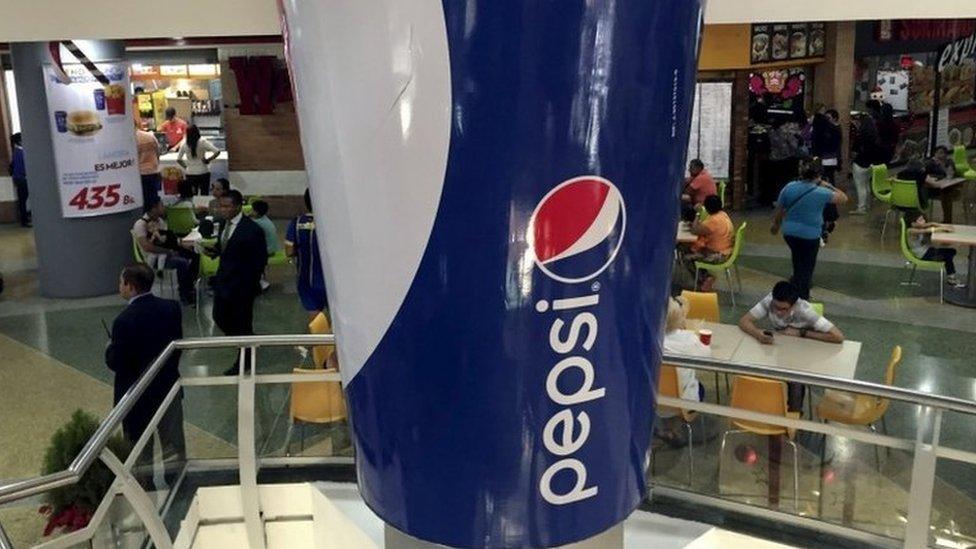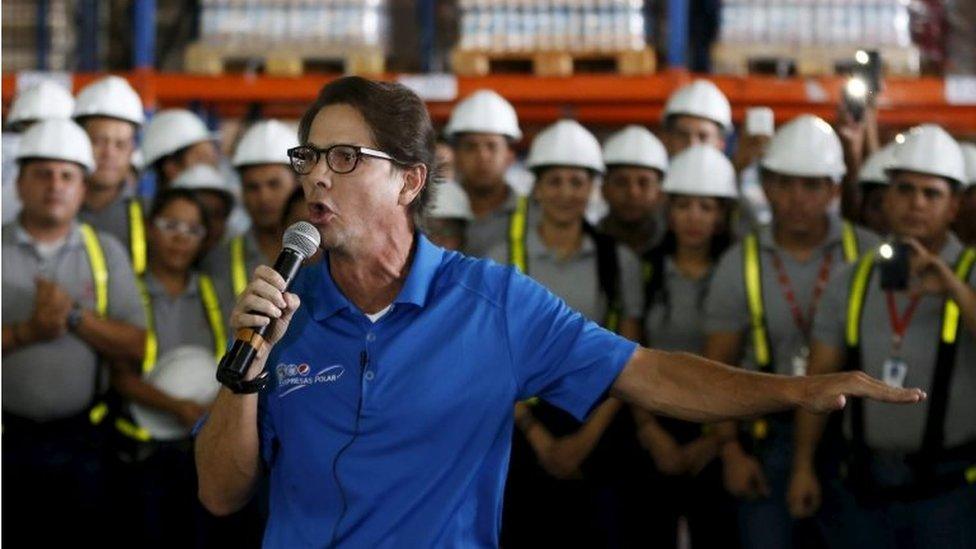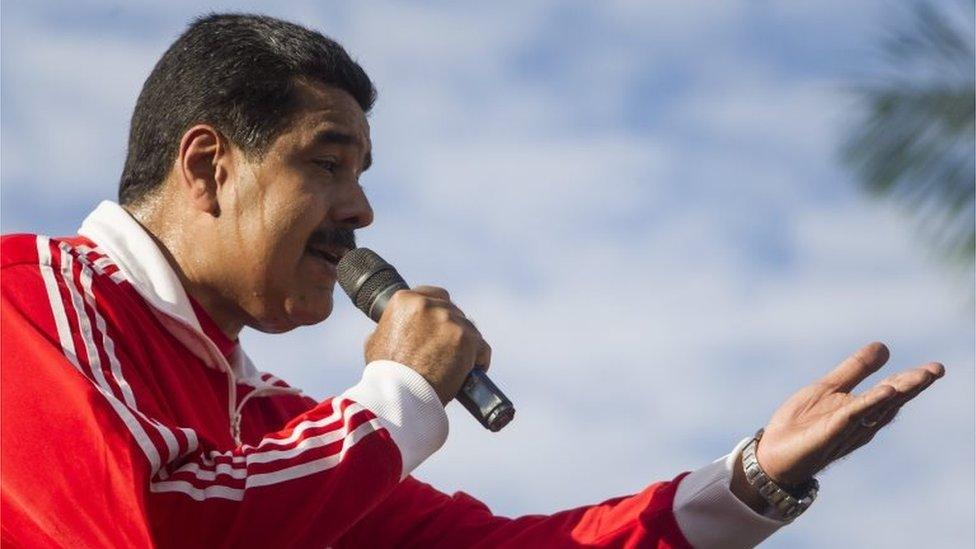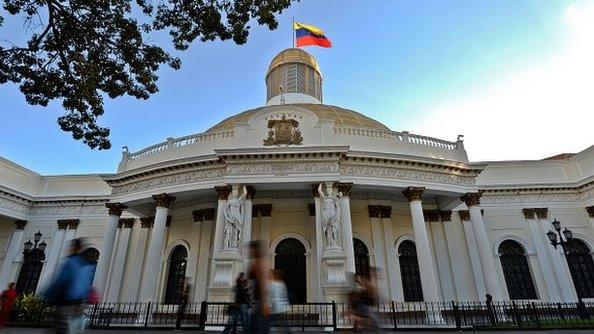Venezuela releases detained Pepsi workers
- Published

A number of employees who were detained at a Pepsi plant in Venezuela on Friday have been released, the local PepsiCo division announced.
Polar, Venezuela's largest food and drinks producer and the owner of the local Pepsi division, said the workers had been "arbitrarily detained".
Venezuelan President Nicolas Maduro routinely accuses the company of hoarding goods to harm the government.
Polar said it had halted production due to a lack of raw materials.
Venezuela's economy on the brink?
The company said that inspectors from Venezuela's Ministry of Labour had visited the plant in Caucagua in central Miranda state on Friday.
According to Polar, Venezuela's currency control system, which restricts the access to foreign currencies, had left it unable to import the raw materials needed to keep up production.
'Oligarch of the devil'
Polar said that the Labour Ministry inspectors ordered that production be restarted at the plant and arrested several employees.

President Maduro routinely attacks the CEO of Polar, Lorenzo Mendoza
Local media said those arrested were the manager of the plant, two human resources employees and a lawyer.
President Nicolas Maduro has repeatedly accused the CEO of Polar, Lorenzo Mendoza, of attacking not just the government but the Venezuelan people.
Speaking at an election rally earlier this month, President Maduro addressed Mr Mendoza: "Oligarch of the devil, are you afraid of the people? Here are the people who are going to beat you, you who are evil and perverse and who hides goods from the people."
'Economic war'
Days later, Mr Maduro's PSUV party suffered a heavy defeat in legislative elections with the opposition coalition winning two-thirds of the seats in the country's National Assembly.

President Maduro says the country is under attack from "imperialist forces"
Mr Maduro blamed his party's loss on an "economic war" he said was being waged on Venezuela by opposition activists, private companies and "imperialist forces".
It was the first major defeat for the governing Socialists since Mr Maduro's predecessor in office, Hugo Chavez, came to power in 1999.
Many voters said they were fed up with Venezuela's spiralling inflation, chronic shortages of some basic goods and insecurity.
The newly elected delegates to the National Assembly will take up their seats on 5 January.
But the outgoing speaker of the National Assembly, Diosdado Cabello, has called two extraordinary sessions in which he wants delegates to nominate 12 new Supreme Court judges.
The opposition says the move is a desperate attempt by the PSUV to cling on to power and impose its influence in the face of their loss at the polls.
- Published7 December 2015
- Published7 January 2016
